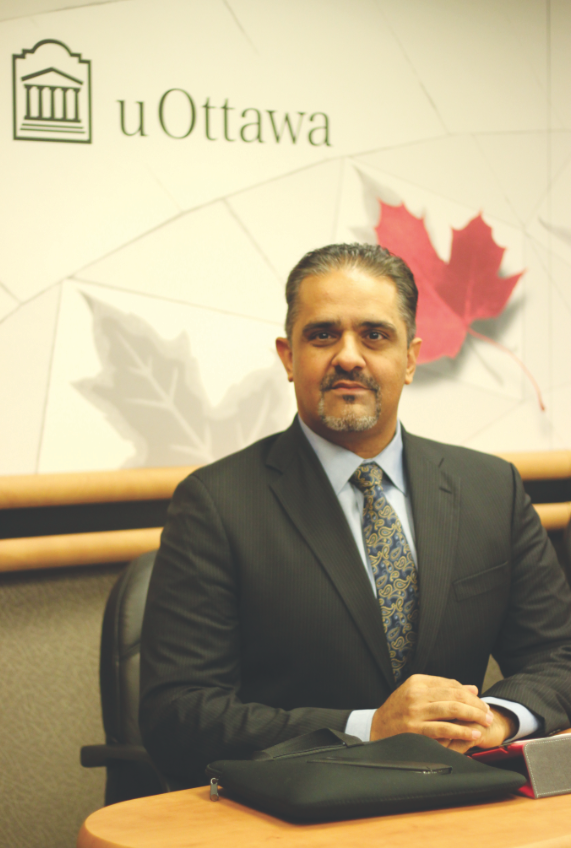Photo by Rebecca Potter
The University of Ottawa has centred this year’s Mini Medical School on cancer and cancer treatment, a first in the program’s history. It will examine issues like prevention, detection, treatment, its forms, and the psychology behind it.
Mini Medical School is an opportunity for people with or without a background in science to attend informative and entertaining lectures on medicine and health. These programs, like the one put on by the U of O, are available all across Canada and the United States and offer participants a chance to experience medical school.
The school is running for two hours every week from Oct. 24 to Nov. 28.
Dr. Paul Hendry, vice dean for continuing medical education at the U of O and one of this year’s organizers of Mini Medical School, explained the faculty of medicine has run the program since 2004 under the direction of Dr. Lisa Moore. This year’s theme will be Defeating Cancer: progress in the management of cancer in 2013.
“This year’s theme … came about from discussions with, and evaluation feedback from, participants at previous courses,” Hendry said. “The lecturers were recommended through contacts with Cancer Care Ontario (CCO) and the Ottawa Hospital’s Cancer Program.”
The first lecture, which took place Oct. 24, had U of O’s Dr. Alireza Jalali begin with Anatomy 101. Jalali’s lecture taught participants about the organs affected by cancer, how cancer cells travel through the body, and where they can end up.
“I want to be able to teach a new audience, people of all ages and professions, as I am accustomed to solely teaching medical students,” Jalali said. “As well, it is important to educate people about health as it will improve the health care system. It is a matter of social accountability. Most importantly, I want people to know that if they get cancer, it’s not the end of their lives; many people are able to live with cancer and survive.”
Dr. Wylam Faught, professor of obstetrics and gynecology at the U of O, gave a lecture on the different approaches to treatment after a malignancy is identified. Malignancies are harmful cancer cells that are able to spread to the rest of the body.
“Cancer treatment is evolving all the time,” Faught said. “There’s a lot of innovation in surgery, we can access tumours that before might have been more challenging, and one of the real benefits has been around faster recovery, less side effects, and less hospitalization. That’s been real progress.”
Hendry said there are preparations for a spring session of Mini Medical School that will cover the same theme.





